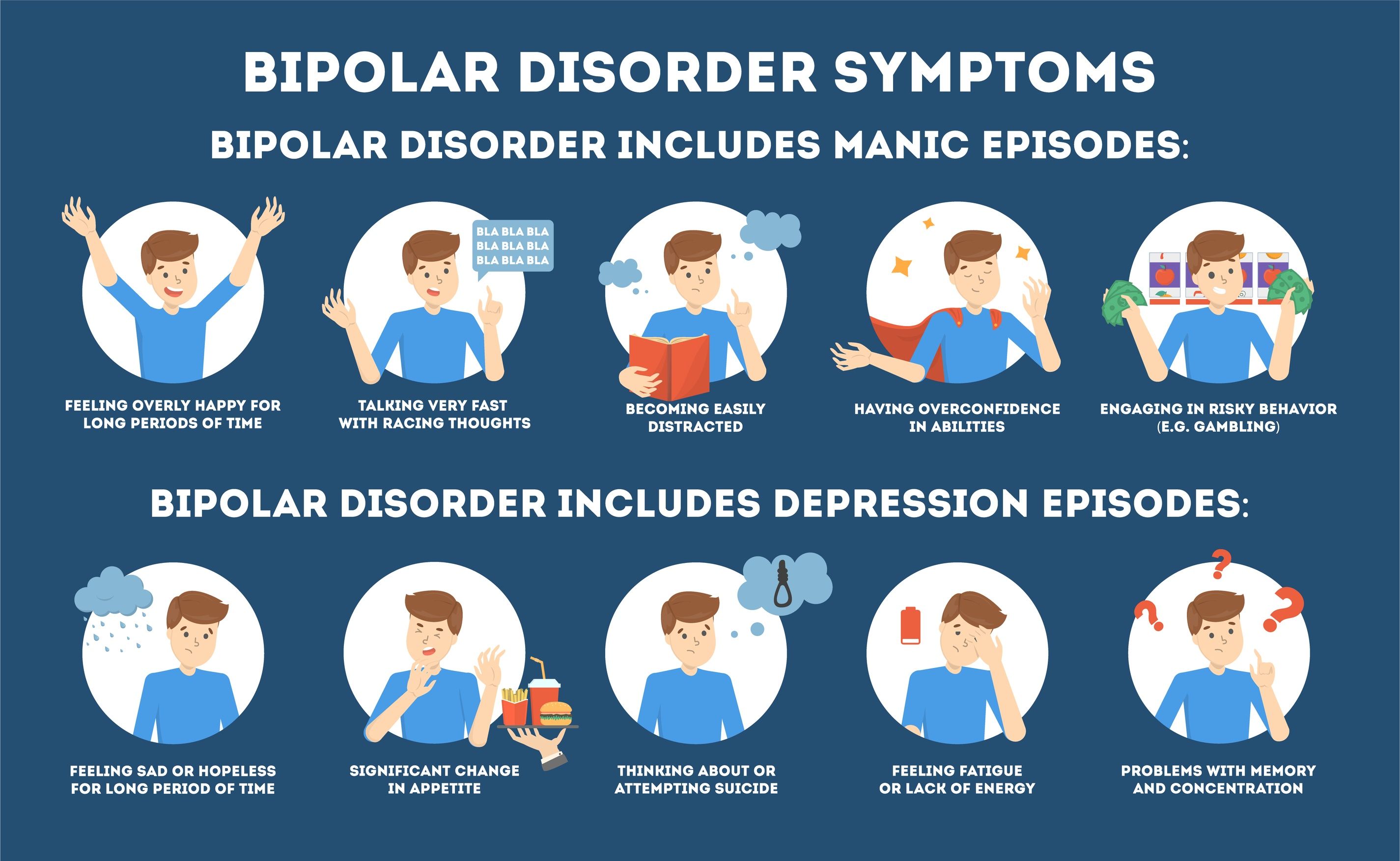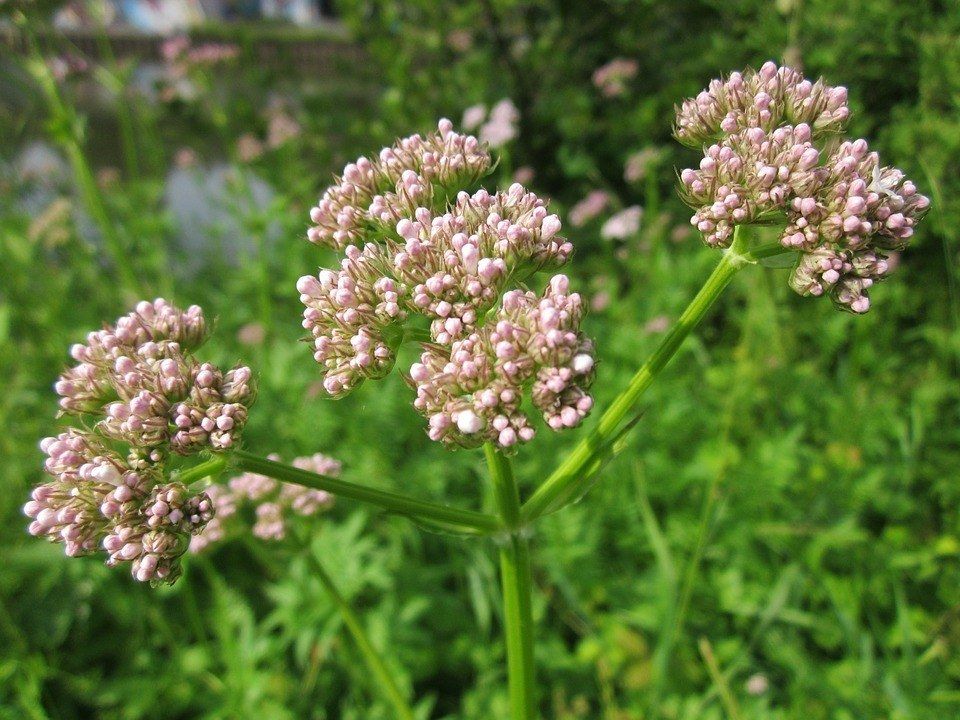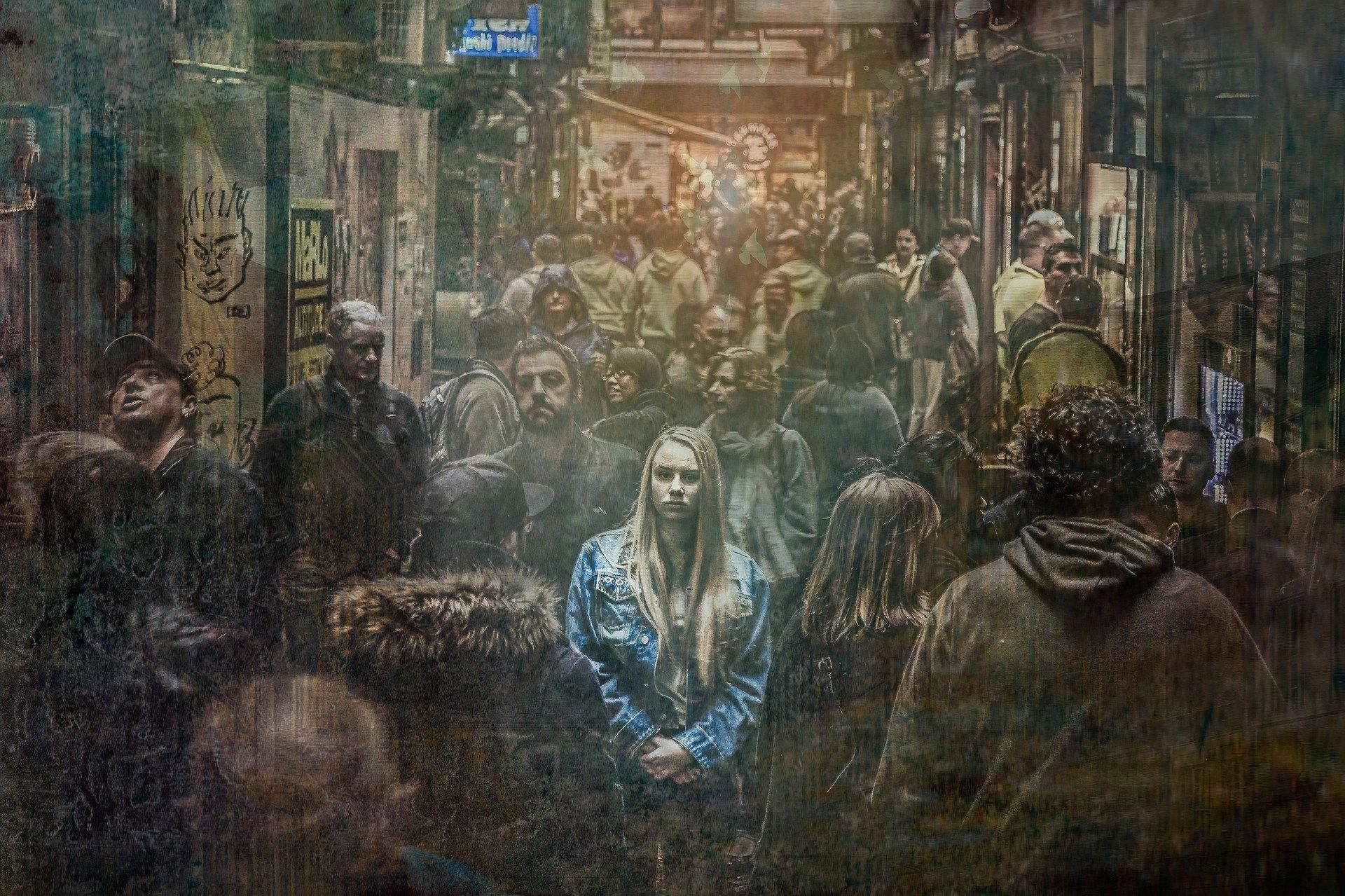- in Depression , Mental Health by Tony
Managing Manic Depression: A Natural approach

No doubt, we have all known someone whose personality does not seem to be consistent; they have these extreme mood swings where one day they seem “high” with a kind of hyper-energy and another day they are down in the dumps, moody, depression.
Sometimes you feel as if you don’t know where you stand with them because even the words they speak can be one thing on one day, but a completely different thing on another day. It might not even have occurred to you that these people might well be manic depression.
More...
"Managing Manic Depression because, for many, it’s choosing life over dying inside"

About manic depression or bipolar disorder
- There are many people living around us who live with this disorder, manic depression. Maybe you are more familiar with the term, bipolar disorder – that is another name for a person with manic depressive. Many of these people have never been properly diagnosed either. The experts say that there are at least 5-6 million people just in the US alone who suffer from this condition.
- It is true that there are many healthy people who also experience changes in their moods – one minute you might see them shouting and getting all agitated about something, and a few hours later you might see them laughing and acting all amiably in another circumstance. This behavior can occur over the course of our lifetime, but those with manic depression are more prone to be much more abrupt and drastic in their highs and lows – to the point of it being unnatural.
- Most people who suffer from manic depression experience a lot of depression; low moods accompanied by the highs. These are called ‘manic phases’ and it can make their quality of life somewhat impaired, greatly affecting their chances of living a normal life or to hold a lasting relationship. They can’t really take care of their personal lives either as far as their health and care of their bodies are concerned, and even their communicating with others becomes a problem.
- You could safely say that when you have bipolar disorder, your whole life is impacted; every facet of it – even your thoughts. Your bodily sensations will be different, your sleep will be different, your behavior and your personality.
When a person is experiencing a manic period such as depression, you will notice extreme restlessness, hallucinations, aggression and rage being manifested. And when the person is having a “low” period, they look like they are experiencing great fatigue, there is a look of despair on their face, and they have no motivation and will even isolate themselves from others.

What causes manic depression?
No one is too sure about the exact cause of manic depression – some people say that there are certain factors like your genes, your childhood environment and how you were brought up, brain chemistry, and certain life events.
But just like clinical depression and other mental disorders, manic depression is a condition that needs to be controlled throughout a lifetime. To manage this condition means educating yourself about it, detecting the early warning signs and then getting professional help.
There is no reason for anyone to feel continually down and to suffer in silence. You might just be going through a tough time or you might actually have a depressive disorder, which is a medical condition which can be treated.
Sometimes there are Depression and Bipolar tests that you can find online which are completely confidential and anonymous to complete, and which when you complete it, will give you the results. But once you find out that you do indeed have bipolar, you need to get medical help to deal with the condition.
Bipolar disorder is usually accompanied by anxiety which needs to be reduced through a healthy lifestyle. The stress needs to be dealt with.

There are different ways of treating manic depression
- Thankfully, there are some fantastic natural treatments that are known to help the person with manic depression.
- Unfortunately, bipolar disorder can even worsen over time, particularly when left undiagnosed or treated. If not dealt with, the ‘high’ and ‘low’ episodes can occur more often and more severe each time. Even though it cannot really be cured entirely, when the symptoms are managed, the frequent mood swings and even destructive behavior and suicidal thoughts can be prevented.
- As with anxiety and clinical depression, there are many doctors who opt to give their patients the conventional type medications. These can be antipsychotics, mood stabilizers, anti-anxiety medication, antidepressants, and so forth.

There are also fantastic natural treatments that help to control the symptoms of manic or depressive phases.
The great thing about the natural supplements is they usually have no negative side effects which are unlike many of the psychotropic medications.
Let’s take a look at natural supplements because there are an amazing group of natural plant-based adaptogen herbs which help to control the body’s stress responses.
They also lower cortisol and improve energy and focus, as well as to balance the hormones.
These herbs include:
- Holy basil
- Ginseng
- Ashwaganda
- Rhodiola
- Valerian
St. John’s Wort (Hypericum perforatum) which is a natural anti-depressant, even helping to give a person a good night’s sleep.
Let’s look at one such, valerian, in a bit more depth:
Valerian is a perennial herb, and native to Asia and Europe. One shouldn’t confuse it with Lady’s Slipper which is often called American Valerian, even though both herbs are said to produce the same kind of therapeutic action.
There are some authorities who say that the name of valerian is from the Latin word valere which means “to be in health” but others believe it comes from the ancient physician Valerius. He was the first to use the herb in medicine.
During the early times, the valerian plant was very highly esteemed for its healing virtues - actually being called the “Blessed Herb” and dedicated to the Virgin Mary. It’s a traditional remedy for functional disturbance of the nervous system, and is listed among the top home remedies in books from the 11th century.
A remedy from the 15th century says that “Men who begin to fight and when you wish to stop them, give the juice of Amanatilla, id est Valeriana (Valerian) and peace will be made immiately.” Isn’t that amazing!

In an article in the British Medical Journal dating as far back as 1928, Dr. Manson wrote that valerian was perhaps the earliest method of treating neurosis. Now today, it is employed by some physicians who combine it with bromides which unfortunately makes valerian inorganic.
Other doctors from way back in time noted that valerian used on its own was especially useful in cases of nervous derangement, particularly in nervous females, in hysterical, restless and irritable conditions.
In one reference to valerian, another doctor from old, Dr. Yemm, wrote that valerian is “soothing and diffusive, giving relief in irritability of the nervous system, insomnia and hysteria, especially suitable for children’s nervousness”.
He went on to say that valerian exerted a marked influence on the cerebro-spinal system, acting directly on those parts, thereby causing steadiness in unbalanced conditions. It promotes sleeps and those suffering from overstrained nerves find it particularly beneficial.
What else is beneficial for those suffering from manic depression?
Essential to good health and anti-depressant aid is omega 3 fatty acids. These are derived from fish oil and they help to lower depression as well as inflammation.
Essential oils are superb in their fight against depression. Oils such as lavender, an all-time favorite, as well as ylang ylang, bergamot, and chamomile are all top herbs used in essential oils.
Some of these oils are excellent for applying to the skin as a way of contributing towards relaxation and reducing muscle tensions.

Probiotics: People with manic depression are said to add quality of life when they take probiotic supplements in their daily routine, and their rates of rehospitalization from manic episodes seem to go down significantly.
That’s amazing news, but not surprising, when you consider that there is a gut-brain connection that greatly influences mental health!
Nutrition is imperative
Anybody who is ill, putting aside mental issues; anyone who is suffering from illness, no matter what it is, needs to consider just how much diet can change the way you feel and behave – you will be amazed!
There are some studies which show that those who eat diets which are high in processed and fast foods from takeaway joints, are likely by as much as 60%, to suffer from depression compared to those people who eat healthier type diets. Yes, your diet can hugely affect the production of hormones in your body, affecting the neurotransmitter function, your energy levels and your overall mood.
If you are eager to start on an anti-depressant type of diet, you should avoid any foods that contain a lot of sugar, as well as added artificial ingredients like artificial sweeteners and sodium for example, let alone genetically modified products. As far as drinks are concerned, all sugary sodas, plenty of caffeine drinking and alcohol should be, at least, greatly reduced.
Here are some top foods that fight depression and anxiety:
Healthy fats, like raw dairy, coconut, grass fed meat.
Lean and clean protein foods, such as free-range, cage-free poultry, grass-fed meat, wild fish becks they contain excellent amino acids in them are vital for balancing the hormones naturally.
And wild caught fish is packed with omega 3 fatty acids which are critical to maintaining a healthy brain. You will find this in halibut, salmon, sardines, and mackerel.
Vegetables and fruit all increase our intake of top antioxidants, minerals, nutrients and vitamins that support mood
Never forget high fiber foods such as seeds, and nuts like chia, flax, pumpkin seeds, hemp. This fiber also contains omega 3 and nutrients for brain health, overall good health; it is fiber which is found in fresh, organic ancient grains like what was eaten in Biblical times. Beans and legumes supply this fantastic fiber as well.

If you are wondering if there are any good diets out there that can provide all the above, it is suggested that the Keto Diet is one such diet, that can positively impact on manic depression symptoms. When you maintain a ketogenic diet, energy in the brain is increased.
It is noted that people with bipolar disorder have higher amounts than normal of sodium in their cells and the keto diet has the same type of effect that conventional mood-stabilizing drugs that treat bipolar have.
Meditation, quietness and peace are desirable
Mindfulness meditation is a trusted tool when it comes to anybody whose mind is not quiet, who is highly stressed, and feels anxious with the whole world on their shoulders. You get different types of meditation. Some people find it difficult to sit still or lie still to meditate and they can benefit from yoga because stress is known to worsen bipolar disorder.
Yoga proves to help because it also helps the person to achieve overall physical fitness by targeting their balance and flexibility. Read about how environmental issues can cause depression too, and one example in the Bible is of Saul who suffered from mental illness. Of course, there are modern famous people too, who suffer from bipolar and you can read about them too.
The thing is, practicing mindfulness is desired to help relieve stress and anxiety symptoms. Because mental illness is so complex and meditation is sought, there are two perspectives of meditation - meditation from the Biblical perspective and one from the Hindi perspective called transcendental meditation.
Here you can decide for yourself which meditation and prayer make sense to you.

Exercise, particularly outdoor exercise is a Huge factor
Exercise, and particularly outdoor exercise, is a natural remedy for manic depression since it is such an excellent way to lower stress. Not only that, it builds confidence too, helping people get a good night’s rest and taking care of the health aspect of the body if it is done in a group.
It helps those with bipolar to connect with other people which is so beneficial. A lot of therapists who work with patients who suffer from depression or anxiety recommend taking a walk outdoors each day, despite the weather, to stay in touch with nature, discovering its wonders, the seasons and all the beauty and relaxation which is so restorative for the body.
The health benefits are simply endless, your heart benefits, your immune system is strengthened, and it helps your bones become stronger and your weight down which is a top priority for good health.
All that natural light is simply uplifting! It doesn’t take a rocket scientist to work out how being outdoors in natural sunlight, walking in peaceful surroundings surrounded by nature can help to lower anxiety, fatigue and hopelessness, the precursor to reducing stress.
More ways to manage stress whilst managing manic depression
Stress can always hit harder when you have to deal with a manic depression; but there are more ways to reduce stress:
Do relaxing things
Read books you love, or listen to soothing beautiful music; always a wonderful tonic. Just look at Beethoven who was also considered to suffer from manic depression.
Practice mindfulness (as discussed above)
Simplify your life, because this keeps the mind calmer, reducing discord in your life.
Maintain a consistent sleep schedule
It is advised that the person with bipolar stay disciplined to their sleep habits, trying to get to bed and awake at the same times every day.
When people with manic depression get a good night’s rest, their emotions are regulated as well as their natural impulses, as well as other important things like their cognitive functioning.
Healthy sleep also has been known to decrease the risk for relapses because when there is not enough sleep; stress enters quickly enough, aggravating the mood.

Get moving and exercising, as mentioned above, because it improves the neurotrophins, which is a family of proteins that promote brain function.
People say animals are therapeutic and they certainly are, only as long as you show respect for the animal, showing it love and care. Then you get rewarded with a sense of calm and comfort, for sure.
There is a difference between depression and manic depression
There is a primary difference between depression (whichever it is; clinical, short-term or major depression) and manic depression. What is that? That the people with depression don’t experience the manic “high” episodes that go with manic depression.
People who have depression tend to experience low moods which are ongoing, and they suffer from sadness, low energy and low motivation for some periods of time. However, they are not interrupted by the symptoms of mania such as excessive happiness or excitement, over energization or aggression with hallucinations.
Depression is more common than manic depression and affects around 6-7% of the US population over time.

Even though they do have their differences, bipolar disorder, manic depression and clinical depression also come with similarities such as aggression, irritability, suicidal thoughts, and changes in sleep, appetite and body sensations.
You get a lesser type of mania known as hypomania; often called bipolar disorder II, and often accompanying some people who have depression.
Those with hypomania seem to experience less severe and life-impairing manic symptoms.
According to the American Psychiatric Association, those with hypomania seem to have an absence of any psychosis, which are hallucinations and delusions. Also, their work and relationships, as well as their quality of life, don’t suffer from the manic symptoms.
Symptoms to look out for in people with manic depression and depression
Common manic symptoms include:
- Excitable and ‘high’ happy moods.
- Hallucinations/delusions (i.e. seeing and hearing things that don’t really exist – sometimes people call it “increased creativity”).
Paranoia and extreme anxiety at times.
- Aggression, irritability, and sometimes rage.
- Trouble sleeping – insomnia.
- Strong ideas and motivation for new plans.
- Loss of appetite; often weight loss.
- Talks fast, with fidgeting.
- Spending more money than is usual on affordable things – like spending a lot of time and energy on unnecessary projects.
Common depression symptoms include:
- Very low moods, to the point of feeling worthless, hopeless, and insignificant.
- Suicidal thoughts can occur and are possible.
- Fatigue or lethargy even though sleeping a lot because of the depression.
- Low motivation.
- Trouble concentrating and making decisions or remembering things – brain fog.
- No longer interested in hobbies and activities.
- Can abuse drugs and alcohol.
Think you might have manic depression?
Get diagnosed as soon as you can, and on the right natural medications because it can be a scary type of disease, but there is power in Nature to keep it manageable.

“And I feel blessed that I was able to get the right attention and the right medication to deal with my specific illness.” – Eric Millegan
Living with bipolar illness I think it makes me a better psychiatrist.
When someone comes to me with something I don't only know it intellectually I know it through a lived experience. There are times where I,
I can feel that the patient wouldn't benefit from maybe knowing that I really understand what they're going through. But I think right now unfortunately within medicine and even within psychiatry stigma still does Exist.
I'm hoping that maybe one day I will be able to be more open about it. Because it does feel like I can't really share a big part of myself that could potentially benefit someone else, right, or give them hope. I had this great life I was in medical school I had great friends I had a great family and I had a certain vision of what my future was going to be.
When I first experienced my first episode the psychiatrist felt that I needed an antipsychotic medication and that moment was like it's almost like the carpet was pulled from under my feet. Kind of saw myself as you know like less than and mentally ill.
I really felt the stigma. I had a hard time looking people in the eyes and facing friends. People were talking about oh when you get better and I would look at them like, ‘When I get better what are you talking about?
This is how I'm going be for the rest of my life.’ I was thinking I'm never going return to school, this is never going get better, and you're also sort of grieving that amazing life that you thought that you're going to have and all of a sudden it's gone.
The first depression that I experienced was very, very severe. I had to take a year off school. I spent most of my time like in bed and my family had to literally come and like, peel me out of bed, off the floor. All I could think about was just dying.
Every moment was just agony like every moment felt like an eternity. Just feeling like I'm hopeless like there’s – I'm never going to get better.
My life is over. When I kind of lost faith in myself I had several friends just regularly calling me and they would just remind me we love you, we're here for you, this is who you are. But I was thinking about all these ways that I would end my life. I never attempted. The only thing that kept me alive was I could not hurt my family and my friends, I just couldn't.
when I started the recovery process never in a million years did I think that I was going to come back to school. I never thought that I was going to get Married; I didn't think that I would have a family. It was a good year and a half until finally, we found the right combination of medications, and until I really fully recovered and started to feel fully like myself.
The number one most important thing in my recovery is the people around me. I have a really amazing and supportive husband, really— you know incredible parents-in-law, a very strong friend network. Everyone knows about you Know, my illness.
And they're very open with me. Thankfully I haven't experienced a depression in years, but I definitely do fear it. It's not like at the forefront of my mind but because of that, I do everything I can to prevent it. I try to keep it in perspective… ok, it's part of who I am, it doesn't define me. It affects me but it doesn't define me.’
Denise RQ I guess I should start by telling you a little bit about who Laura is. She’s a very passionate person. And she loves science very much, and loves to talk about it all the time, much to her friends’ dismay.
She’s also a sailor.
She used to be the registrar of the UBC Sailing Club.
So, other things– she’s a daughter, she’s a sister to three big brothers. She’s also an auntie to the cutest little niece ever.
She’s bipolar.
Bipolar is a brain disorder which causes unusual shifts in a person’s mood, energy, or ability to function. It’s unlike the normal ups and downs that people go through. The symptoms of bipolar are more severe. In the “Diagnostic and Statistical Manual for Mental Disorders,” it describes it in this way, “Bipolar is the presence or history of one or more major depressive episodes present during the same two-week period, and represent a change from previous functioning.
At least one of the symptoms is either depressed mood or loss of interest or pleasure. These symptoms can be depressed mood most of the day nearly every day, markedly diminished interest or pleasure in all or almost all activities, significant weight, loss or weight gain, or decrease or increase in appetite, insomnia or hypersomnia nearly every day, psychomotor agitation or retardation nearly every day.
Fatigue or loss of energy nearly every day, feelings of worthlessness, or excessive, or inappropriate guilt nearly every day; diminished ability to think, or concentrate, or indecisiveness; recurrent thoughts of death not just fear of dying; or a suicide attempt or a specific plan for committing suicide.
There’s also the presence or history of at least one manic episode. Mania is a distinct period of abnormally and persistently elevated, expansive, or irritable mood, and abnormally and persistently increased activity or energy lasting at least four consecutive days, and present most of the day, nearly every day.
It can be described as inflated self-esteem, or grandiosity decreased need for sleep, more talkative than usual, or pressure to keep talking. There can be flights of ideas or subjective experience that thoughts are racing. There’s distractibility, increase in goal-directed activity or psychomotor agitation.
There’s excessive involvement in pleasurable activities that have a high potential for painful consequences.” The DSM provides a common language among professionals who treat patients with mental illnesses.
By clearly defining the criteria for a mental disorder, the DSM ensures that the diagnosis is both accurate and consistent. OK, enough of this bullshit. (Laughter) I’m going to be real with you. It’s pretty obvious that I’m the crazy one here. My name is Laura, and I am living with bipolar.
So, I want to offer you today a bit of my story. I want to go beyond the traditional definitions and give you a bit more of the lived experience. I must admit, sometimes, it can be frustrating to explain bipolar to those who are not experienced in the same mental skillfulness as I have. But I’m going to try.
So… I also want to talk about language.
It’s interesting because before I was ever diagnosed, I had never read the DSM. I had no idea what criteria I was falling under.
All I knew was that there were times where I was sad, and there were times where I was happy.
And the times were I was sad or in depression, it was kind of like this winter state. It was like things were darker or colder. And times of mania are more like summer.
There’s high energy, things are bright and fun. I was about 16 when I first began to experience the inexplicable periods of sadness.
There were no external reasons for me to feel this way.
My mind simply placed me there in this depressing winter state. It wasn’t until later on that I began to realize the manic summers, which were interesting.
And so, what I decided to do is I started to track my moods on a calendar.
Each day, depending on if I was feeling if I had higher energy or lower energy, I would place an arrow on that day. I started to notice that there would be persistent upward arrows indicating higher energy for about two weeks.
And then, there would be a shift into downward arrows which would last for another two weeks.
This was confusing for me. And it was unsettling for my mind, especially in the transition days, going from high to low.
I felt out of control in these cycles that I was tossed into.
It’s scary, and I needed some relief.
This is when I sought out a counselor at College.
In weekly cognitive therapy sessions, I was able to work through some of these ups and downs, and highs and lows, and whatever we’re going on. And I learned some really helpful tools for how to find balance.
As a scientist, I find it very difficult to look at myself and not apply a formula.
“If I do this, this, and this, then I’ll be happy. “
If I do this, this, and this, then I don’t have to be sad anymore.
” But you know, I learned that wellness is more like art.
You have to be able to see the gray, and there’s not always a right answer.
I’m going to read to you a bit from my journal because after I saw a counselor for a while, I also realized that medication could be a helpful tool for me. And so, I went to see a psychiatrist. And it was kind of scary.
You know, sitting there, wondering, “OK, am I going to come out with a Laura/ bipolar Laura/crazy person?
I don’t know.” But it wasn’t totally that way. I started seeing a psychiatrist, dah-dah-dah-dah. And then, I went for my second psychiatric assessment at UBC.
“A second opinion– an hour bike ride, an hour wait, and over an hour talking about my moods and family history.
It turns out that I am indeed Bipolar Type II, rapid cycling.
But whatever! I’m feeling much more comfortable with my mental things.
Taking meds seems less scary and more just something extra to do in my morning routine.
I’m still quite private, though, and I don’t feel comfortable sharing about my psychiatric appointments, my illness, or medication.
It’s still new, and it can be overwhelming at times. I’m working things through, and I think it’s going to be OK.
Well, I have some time to think about it on my bike ride home.
So, what’s it like to be manic?
Well, it’s kind of like wearing really gorgeous heels, like these. (Laughter)
And you just walk around, and you feel taller.
There’s confidence.
There’s a direction to it.
Just things are clear and easy.
There are thoughts and ideas that just come so naturally; ideas, ambitions, hopes.
Anything is possible, the world is limitless!
But trouble comes when these thoughts don’t stop when it goes beyond control when you can’t will yourself to sleep because you can’t stop thinking of the creative project that you want to do tomorrow, or the next trip that you want to go on, or your new life plan.
So, I have another journal entry to share with you.
All of my secrets.
This one I titled “Zopiclone,” also known as “Little Blue Pills.”
“My mental state: hypomanic.
Bipolar season: summer. I didn’t fall asleep until 4 a.m.
Too many thoughts, too many ideas, too much happening in my head.
After three and a half hours of willing myself to sleep, I made the healthy move, and I took one of these little blue pills.
A metallic taste lingers in my mouth. It feels disheartening every time I have to take one, but I guess it’s OK.
Even though I may have the tools, I sometimes lack the connection. In the end, I was glad for my humility. Sleep was good. I find that the struggle is harnessing this energy for school purposes and holding off on my social and creative ambitions.
Then, there’s the other side of things.
The depression side. Well, depression is more like slippers.
Not the comfy, cozy kind of slippery feeling. It’s more of the need to feel safe and secure.
That outside of these slippers, it’s just not right. And it’s kind of awkward walking around in slippers, giving a talk in front of 400 people, being depressed amongst classmates, and family, and friends, and roommates. And with depression, there also comes these kinds of winter glasses, where things just seem darker.
It’s out of focus. The lenses are distorted, and it’s difficult to see farther ahead.
So, bipolar is kind of like wearing the depressed slipper on one foot, and a hypomanic heel on the other. This is such a contrast. You know, on one foot you’re walking around, just upon an adventure, ready to go and see the world, and then you fall down, and just can barely get out of bed, and just drag along.
But, you know, I live like this. Somehow, each day, I live like this.
It’s funny because when I first applied for the TerryTalk, I was definitely wearing the manic heel. (Laughter) And then, they accepted me, and I was like, “Oh, crap!” (Laughter) And then, a week or so later, I became depressed, and the thought of standing here today in front of all of you, in my slippers, it was just impossible!
So, how does this fit in relationships?
As I said before, sometimes, it can be frustrating to try to explain my moods to those who haven’t experienced this, who aren’t mentally skilled.
And yet, I really do want to try. I really do want to start talking about these things, because even in just the title of this talk, you wouldn’t believe how many conversations have been started which never would’ve happened, and that’s a beautiful thing.
Because when we start talking about this stuff, it becomes OK. So, as I walk around campus – I’m a biology student in my fifth year – I’m just savoring the last little bit that I got.
I have classes over in Buchanan, and in forestry, and all over campus. I see the slogan that is everywhere which says that “UBC is a place of mind.” It causes me to question,
“What kind of mind is this?
Is it an open mind?
Is it a healthy mind?
Is this a place where my mentally ill mind can be?
I wonder, after this, are you going to call me Laura?
Or are you going to call me bipolar?
Tell me; is this OK, or do I have to hide?
Thank you.
(Applause) .
As found on Youtube
